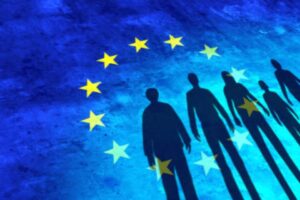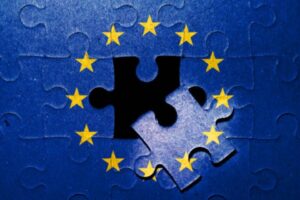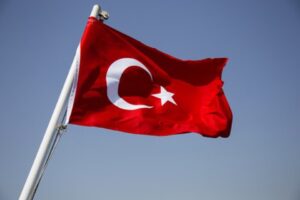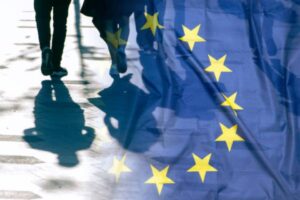The EU will be presented with a new strategy for combatting human trafficking in by the European Commission, according to an announcement published by the Commission.
The Commission’s strategy will focus on reducing the demand that fosters human trafficking, breaking the business model of traffickers, protecting and supporting victims of trafficking, and promoting international cooperation. These points will be summarized below:
Reducing the demand that fosters trafficking
The Commission will address the possibility of establishing minimum EU rules that criminalize the use of exploited services of trafficking victims. They will also organize, along with national governments and civil society organizations, a prevention campaign targeting high-risk sectors. In addition, they will propose policies that will provide guidance on due diligence in the private sector to inform them of their responsibilities in the issue and prevent forced labor.
Breaking the business model of traffickers
The EU will begin talks with private internet companies to reduce the use of online platforms for recruiting and exploiting victims of human trafficking. In addition, the Commission will encourage systematic training for judicial and law enforcement operators to detect and address human trafficking.
Protecting, supporting, and empowering the victims of human trafficking with a specific focus on women and children
Improving the early identification of victims is a keystone in stopping the process. The Commission will also focus on victims’ referral for further assistance and protection, as well as strengthening victim empowerment programs and facilitating re-integration. In addition, the Commission will fund gender-specific and child-sensitive training to assist police, social workers, border guards, and healthcare staff to detect victims of human trafficking.
Promoting international cooperation
Because half of the victims identified in human trafficking incidents are non-EU citizens, international cooperation is key in addressing the issue. By using a range of foreign policy instruments, the Commission plans to combat human trafficking in countries of origin and transit. The upcoming Action Plan Against Migrant Smuggling will also aid the EU in disrupting traffickers’ business model in moving victims into the EU for exploitation.
Human trafficking remains a huge issue in the EU despite progress made against the problem in recent years. The victims of this crime are usually women and girls trafficked for sexual exploitation.
The EU’s efforts so far have been commendable on the front of combatting human trafficking, however, the problem continues to persist. The Commission’s new strategy could benefit both authorities fighting to stop the problem and the victims of the human trafficking themselves.
“Trafficking in human beings is a crime that should have no place in our societies. Yet, criminals continue to traffic victims, mainly women and children, and mostly for sexual exploitation. We owe the victims protection, and we need to bring to justice the perpetrators who treat human beings as a commodity. We will look at the rules in place to check if they are still fit for purpose and we will assess the possibility of criminalising the use of exploited services from trafficking victims,” said Commissioner for Home Affairs Ylva Johansson.
The strategy outlined by the Commission will still need time to pass through varying levels of government until it can be fully implemented.
To read the announcement and subsequent published documents, click this link.













